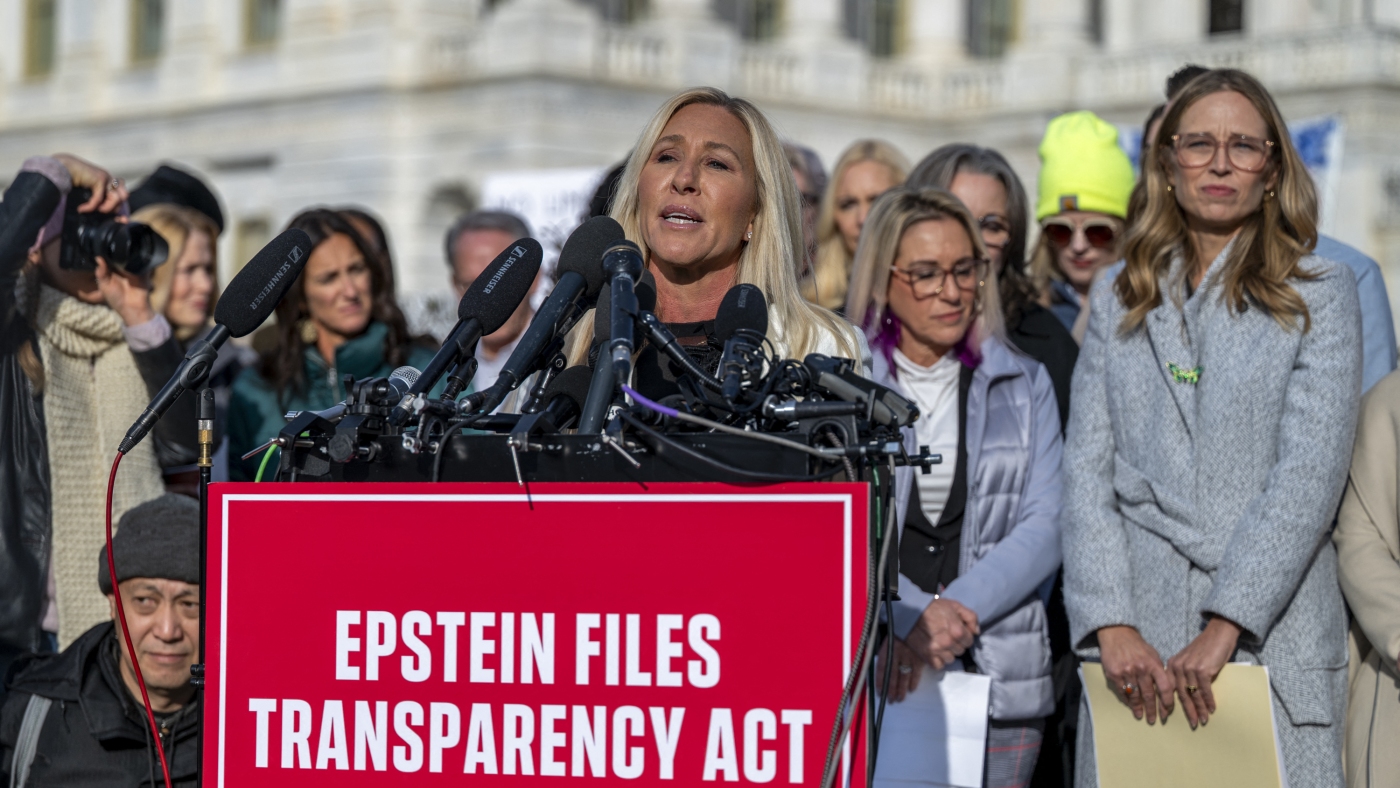Marjorie Taylor Greene Resigns from Congress: From Top Trump Ally to Defiant Departure Over Epstein Files & Policy Clashes
 United States
Politics
United States
Politics

Marjorie Taylor Greene resigns from Congress, marking a split from Trump over Epstein files and policy disagreements. Once a top ally, her shifting stances spar
Marjorie Taylor Greene Resigns: A Political Evolution and Split from Trump
Marjorie Taylor Greene, once a staunch ally of former President Donald Trump, has announced her surprising resignation from Congress, marking a significant shift in her political trajectory. Known for her provocative rhetoric and unwavering support for Trump during his first term and the run-up to the 2020 election, the Georgia Republican’s decision to leave her seat in January, ahead of her term's end, stems from increasingly public disagreements with Trump during his hypothetical second term.
Greene cited concerns that her deeply conservative northwest Georgia district should not "endure a hurtful and hateful primary" against her by Trump, whom she had previously championed, particularly with an anticipated Republican loss in the midterms.
The Growing Rift: Epstein Files and Policy Clashes
The most recent and public fracture between Greene and Trump revolved around her insistent push for the full disclosure of documents related to convicted sex offender Jeffrey Epstein. For several months, Greene, alongside a small group of House Republicans, lobbied intensely for the release of all files from two federal investigations into Epstein. This effort culminated in a House floor vote, which ultimately compelled Trump to reverse his stance on the documents, leading to near-unanimous congressional support for their release.
Before Trump’s reversal, however, he launched a scathing attack, labeling her "Marjorie Traitor Greene" and publicly speculating about a political change in her behavior. Greene fiercely defended her actions, stating, "Standing up for American women who were raped at 14, trafficked and used by rich powerful men, should not result in me being called a traitor and threatened by the President of the United States, whom I fought for."
Beyond the Epstein files, cracks in their alliance had become visible over the past year. Greene openly challenged Trump on various policy fronts, notably calling the war in Gaza a "genocide," criticizing his decision to bomb Iranian nuclear facilities, and advocating for the extension of expiring health subsidies due to rising premiums affecting her constituents, including her own family. Her willingness to express these views not just on conservative platforms but also on mainstream shows like ABC's The View underscored a notable shift.
"What Happened to Marjorie?": A New Public Persona
This evolving public persona has led many, including Trump himself, to question, "What happened to Marjorie?" University of North Georgia professor Nathan Price remarked on her seemingly "normal congressperson" demeanor during a The View appearance, contrasting it sharply with the earlier Greene known for embracing QAnon theories, controversial social media posts, and confronting Parkland survivor David Hogg.
Georgia Republican strategist Brian Robinson suggests several possibilities for Greene's transformation. He pondered if she might have experienced a "road to Damascus" moment, a genuine conversion away from past toxic behaviors towards a more constructive approach. Robinson also noted that as an outsider elected to Congress, her learning curve might be leading her to pursue more substantive legislative work. Another theory suggests she might be strategically broadening her appeal, especially among women, as she potentially eyes higher office, a prospect Trump previously dismissed based on polling data.
While Greene asserts "Nothing has changed about me" and that she remains "100% true to the people who voted for me," observers like Robinson and Price believe her evolution is more about style than core substance. She has disavowed some past controversial views but maintains others, such as unproven claims of fraud in the 2020 election. Her foundational anti-interventionist and anti-elite principles continue to define her political identity, with Price suggesting her current actions are a response to a perceived shift in Trump's own positions on these issues.
District Reaction and Future Implications
The unexpected resignation also opens doors for potential political opponents. Robinson, who once advised against challenging Greene, now sees a different landscape.
Within her 14th Congressional District, heavily working-class and rural, the immediate reaction to her resignation was less clear-cut. Ricky Hess, chair of the Paulding County Republican Party, noted that constituents primarily focus on local economic issues like property taxes and healthcare costs. He believed Greene's "America First" worldview resonated deeply with them, seeing her and Trump as aligned fighters. However, political talk radio host Martha Zoller suggested that voters were "reeling" and adopting a wait-and-see attitude.
Greene’s unpredictability, culminating in her resignation, adds another layer to the complex dynamic of the Republican party. While Trump has reconciled with other former adversaries, his future relationship with Greene remains uncertain. Zoller highlighted a broader question stemming from this conflict: "What is the Republican movement once it's not Trump?" Greene’s resignation, surprisingly, makes the answer to that fundamental question less defined than before.





